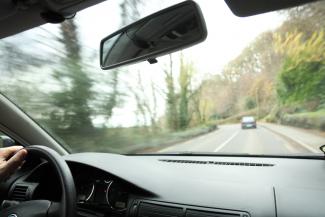
Look at these examples to see how used to, get used to and be used to are used.
I used to want to be a lawyer but then I realised how hard they work!
How's Boston? Are you used to the cold weather yet?
No matter how many times I fly, I'll never get used to take-off and landing!
Try this exercise to test your grammar.
Read the explanation to learn more.
Grammar explanation
Used to + infinitive and be/get used to + -ing look similar but they have very different uses.
used to
We use used to + infinitive to talk about a past situation that is no longer true. It tells us that there was a repeated action or state in the past which has now changed.
She used to be a long-distance runner when she was younger.
I didn't use to sleep very well, but then I started doing yoga and it really helps.
Did you use to come here as a child?
be used to and get used to
Be used to means 'be familiar with' or 'be accustomed to'.
She's used to the city now and doesn't get lost any more.
He wasn't used to walking so much and his legs hurt after the hike.
I'm a teacher so I'm used to speaking in public.
We use get used to to talk about the process of becoming familiar with something.
I'm finding this new job hard but I'm sure I'll get used to it soon.
It took my mother years to get used to living in London after moving from Pakistan.
I'm getting used to the noise now. I found it really stressful when I first moved in.
Be used to and get used to are followed by a noun, pronoun or the -ing form of a verb, and can be used about the past, present or future.
Do this exercise to test your grammar again.




Hello Stellaaa,
In terms of meaning, these are very similar. I think become familiar tends to be used with a sense of recognition - the way something looks or is physically organised - while used to suggests something more like a routine of some sort becoming normal.
Peter
The LearnEnglish Team
Hello Stellaaa,
I'd suggest you have a look at the Modal verbs section of our Grammar reference. Both 'could' and 'would' are mentioned on several pages in that section and the explanations should give you a good idea of how to use them.
After you study them a bit, let us know if you have any questions -- there's a space for comments on those pages as well and we'd be happy to help you with specific questions.
All the best,
Kirk
The LearnEnglish Team
Hello cha14,
In this context 'take-off' is a noun and it is grammatically correct. We often use this form:
What time is take-off?
With such a strong wind that was a difficult take-off!
It's also correct to use 'taking off' here. There is no difference in meaning.
Peter
The LearnEnglish Team
Hello danybern,
The difference is the time that the getting used to happens. 'get' is present tense and 'got' is past tense. Notice that in the first sentence, the verbs are 'is worried' and 'won't be able', which refer to the present and future -- so 'get' is better than 'got'.
The second sentence is about the past and so 'got' is more appropriate.
Hope this make sense.
All the best,
Kirk
The LearnEnglish Team
Hi John A.
Two answers are possible here:
In this context, there is little if any difference between them.
In the construction 'be used to','to' is a preposition, not a part of the infinitive. It is followed by an object, generally a noun or gerund:
Peter
The LearnEnglish Team